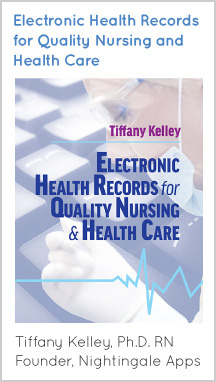Meet Dr. Shanina Knighton:
The Entrepreneur in Patient Hand Hygiene

Describe your initial interest in patient hand hygiene?
As a student nurse during my clinical rotations I would often hear about the importance of healthcare worker hand hygiene, but with flu outbreaks such as Swine and H1N1 being an issue at the time I wondered why patients did not practice hand hygiene. I asked my clinical instructor who said, “Our hands being clean matters more than patients.” I disagreed and wanted to theoretically understand how a population that comes to hospital settings because of illness could not be a risk to contaminating others.
What was the problem that you saw which was not being addressed?
Throughout my years as a nursing student and now as a nurse, I repeatedly observed patients’ deficient hand hygiene practices. I would provide them with resources which they could not and would not use because of being sick, weak, bedbound or forgetful. I would watch them struggle to use the wall dispensers, sinks, hand sanitizer bottles and wipes.
As a nurse, I knew the burden and frustration of not being able to assist patients with hand hygiene every time they blew their nose, used their urinals, touched their wounds, or simply just wanted to clean their hands. Without many studies to support my phenomena, I created a patient-smart hand sanitation dispenser that affixes to the patient’s bedrail, reminds the patient when and how to clean their hands and advocates for the patient by telling others coming near to clean their hands. I remember pitching my product in front of a group of investors for an innovation startup fund and being rejected by a guy with no nursing background that said, “You seem nice…but only healthcare workers cause infections.”
What was a turning point for you in your efforts to support patients with hand hygiene?
My expertise and years of experience was overshadowed by someone that never practiced as a clinician. That day changed my life. I said, “If entrepreneurs, inventors, investors, healthcare leaders whom have never practiced heavily influence products and services used by patients and nurses WITHOUT nurses, something is wrong.” Furthermore, I noticed that there was not much research or policies out there to support my claim that patients carry pathogens on their hands and have poor hand hygiene practice.
How did your entrepreneurial journey begin?
I remember walking into Frances Payne Bolton School of nursing and saying, “I am an entrepreneur and infection control leader and I want to study patient hand hygiene because our patients need usable products.” I will never forget the words of Dr. Jaclene Zauszniewski, “Well study it then, let me tell you about out PhD Program.” Entrepreneurship launched my nursing career in research and research enhances the depth of innovation, collaboration and impact that I am and will be as an entrepreneur and researcher.

 Know My Voice®
Know My Voice®



